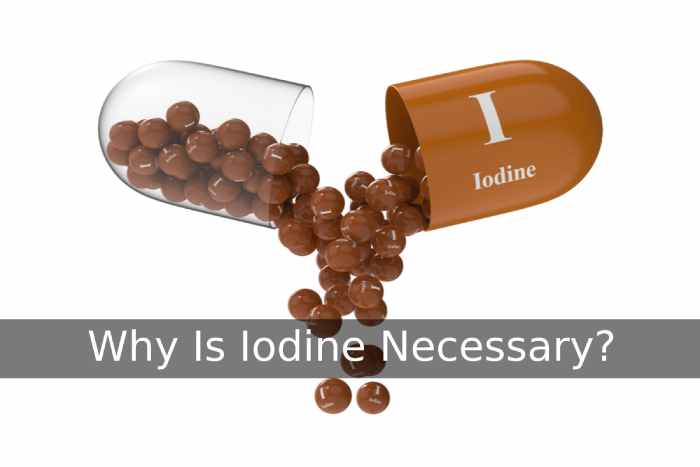Iodine Supplements – Iodine is essential for a lively and radiant body. It is vital to the body in many ways, including supporting immune system function, metabolism, and cardiovascular health. In addition, it is projected that more than half of the US population suffers from inadequate iodine levels. Iodine is an essential factor in thyroid function, especially in the production of T3 and T4 hormones, which are critical to regulating metabolism. Compare them with some of the iodine supplements on the market.
Table of Contents
What Is Iodine?
Iodine is a non-metallic mineral that humans need in small amounts for proper growth and development. It is present in most soils, is absorbed by plants, and is ingested by humans and animals. Most of the body’s iodine stores are located in the thyroid gland and require iodine to synthesize thyroid hormones.
Why Is Iodine Necessary?
The thyroid uses iodine to harvest hormones that regulate all primary metabolic functions, including blood cell production and nerve and muscle function. Since our body temperature is mainly derived from muscle metabolism, these hormones also regulate body temperature. Topically applied iodine also helps prevent wound infection. In addition, iodine tablets dissolved in water provide an inexpensive way to purify water in an emergency.

What Are the Signs of a Deficiency? – Iodine Supplements
Signs of iodine deficiency include thyroid goiter and weight gain, as well as symptoms of hypothyroidism such as fatigue and cold tolerance. Chronic iodine deficiency can cause health problems such as thyroid dysfunction and neurological, gastrointestinal, and skin abnormalities. Iodine deficiency in pregnant or lactating mothers can cause defects during fetal and infant development and is the most shared cause of preventable brain damage worldwide.
How Much, And What Caring of Iodine Supplements Does an Adult Need
According to the National Institutions of Health (NIH), adults over 18 should consume 150 mcg daily. Pregnant women over 18 years old, 220 mcg. Breastfeeding woman, 290 mcg.
How Much Does A Child Need? – Iodine Supplements
NIH recommends taking the following daily.
- Infants 0-12 months, 50 mcg
- Children 1-8 years, 90 mcg
- Children / Adolescents Adolescents 9-13,120mcg
- Adolescent 14-18 years old, 150 mcg.

How Do You Get Sufficient Iodine from Foods?
But, a good source of iodine is iodinated salts—dairy products (animals secrete dietary iodine into milk, and animal feed contains iodine). Shellfish include fish, shellfish, algae, seaweed, sardines, and canned tuna. Plants grown in iodine-rich soil are also a good source. However, if you have a healthy, balanced, and diverse diet, you probably have enough iodine and don’t need to use iodine-added salts.
Are There Any Perils Associated with Too Much Iodine?
Symptoms of acute iodine poisoning include burning sensations in the mouth, throat, and stomach—fever; nausea; vomiting, diarrhea; weak pulses; and coma. Excessive iodine intake can be toxic to people with kidney disease and tuberculosis and may increase the risk of papillary thyroid cancer. In addition, the unhealthy practice of using iodine tablets to “enhance” thyroid function can cause toxicity. Do not take iodine tablets unless recommended by your doctor.
